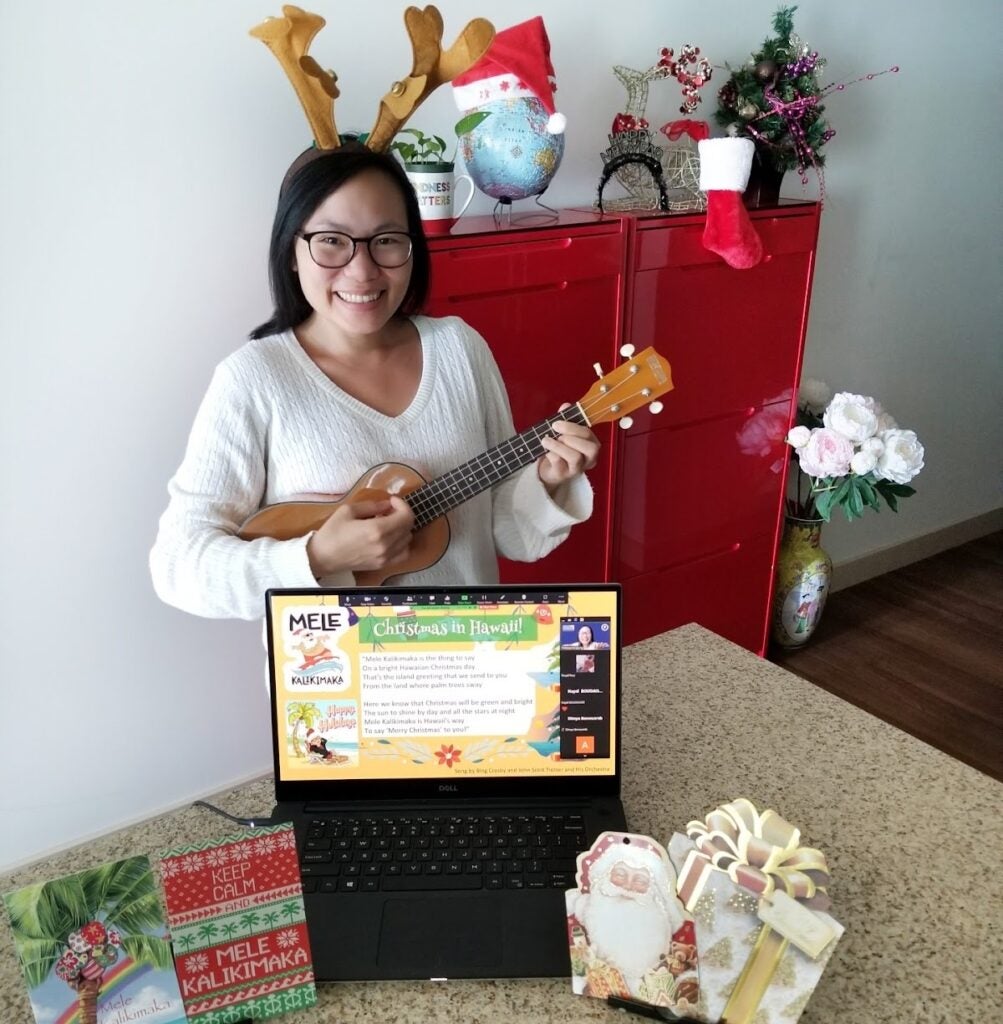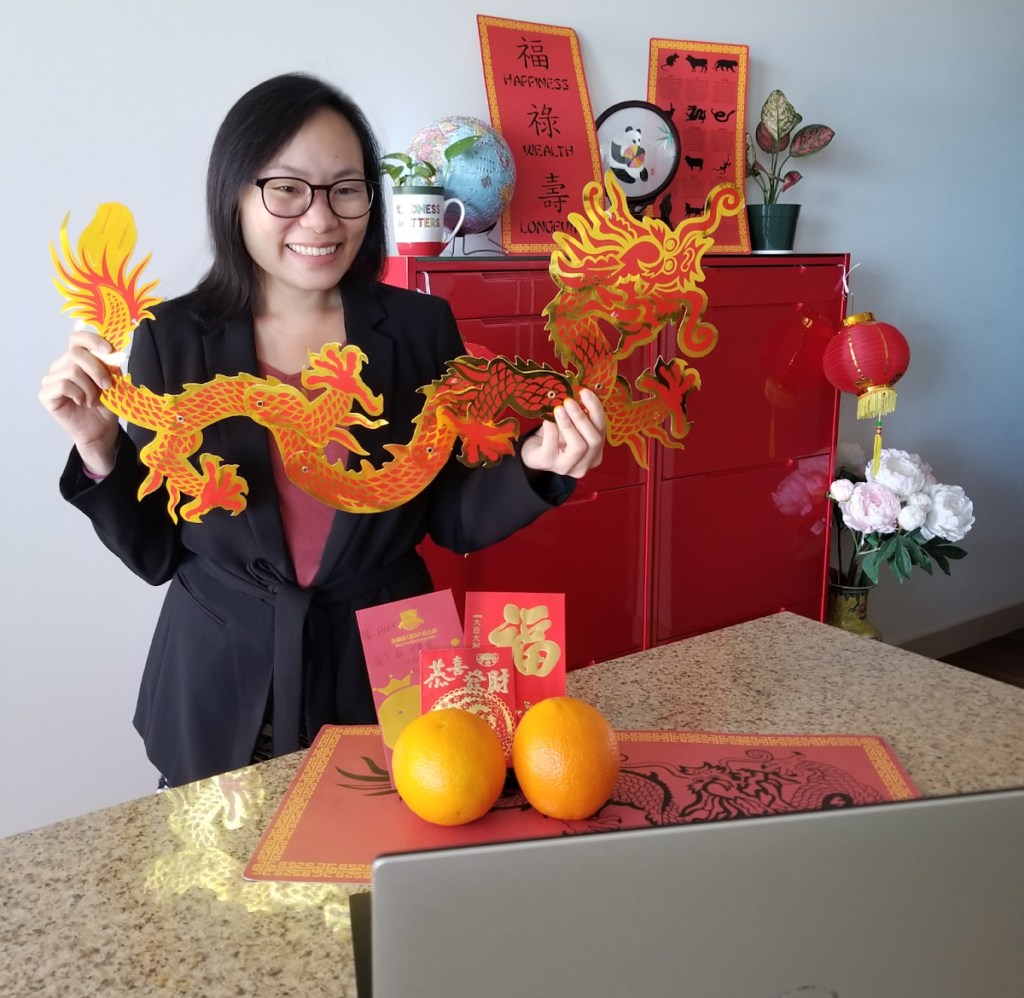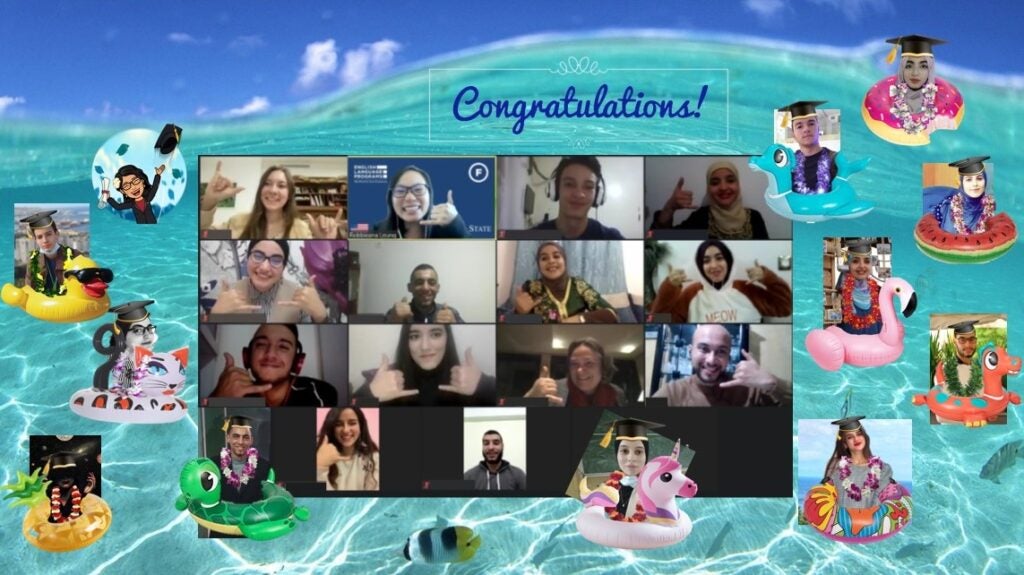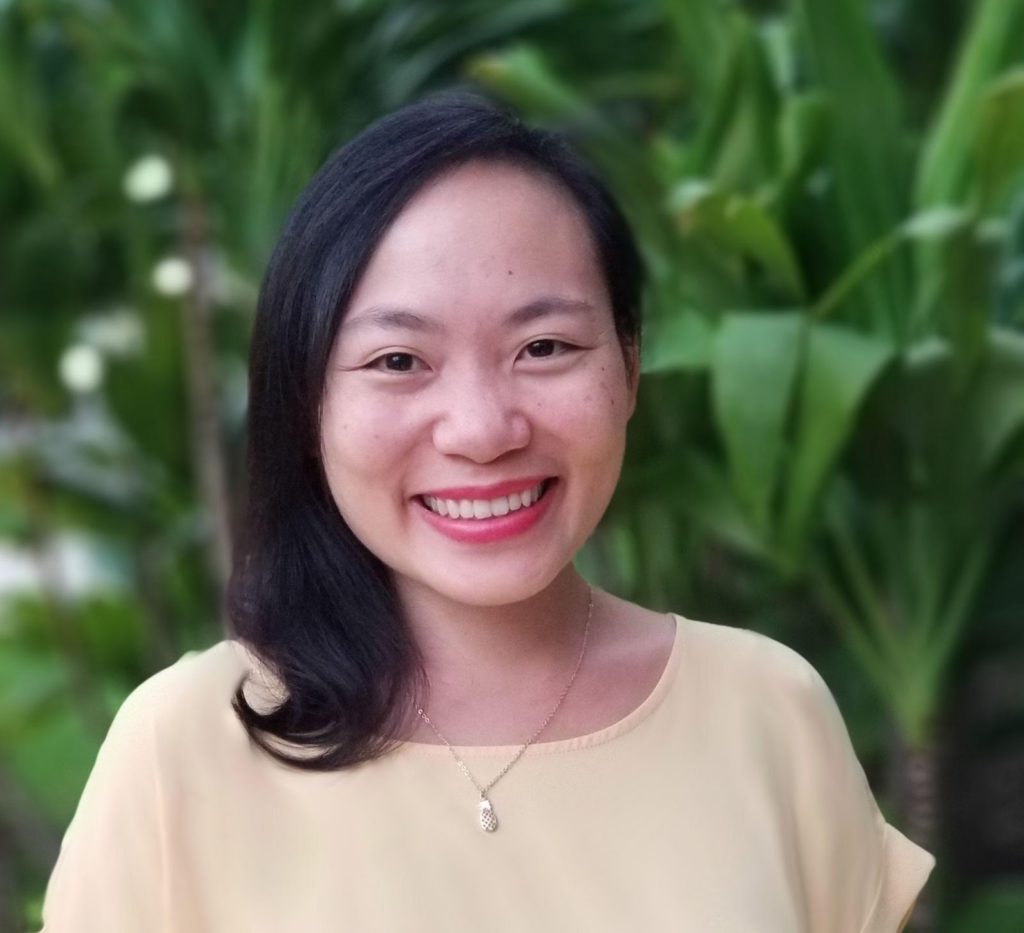The virtual environment is constantly sharpening my creativity as an educator and opening up new ways to problem solve and explore innovative platforms and programs to engage students.
During the 2021-2022 academic year, Robbieana Leung led online English classes and conversation clubs in partnership with World Learning Algeria and the American Cultural Center in Algiers (ACCA), a cultural and information resource center located at the U.S. Embassy Algiers. Meeting the needs of all learners across a mixed grouping of age ranges and fluency levels required an innovative approach. “The classes, cultural challenges, and virtual environment were a rewarding exercise in creativity and adaptability,” Leung reflects. “Stretched as an educator to engage groups of students that ranged in English competency, life stages, internet stability, and comfort with turning on their cameras, I grew personally and professionally.”
Sharing Culture Authentically
Leung relishes the freedom to design classes tailored to students’ interests and goals. “Having students that generally have little to no interaction with Americans, every conversation class is an opportunity to explore culture and discuss ways in which we are different and similar,” she explains. To make the online classes as authentic and natural as possible, she includes mixed-media presentations and task-based learning. When presenting on U.S. culture and holidays, she is able to draw on her own experiences of intersecting cultures as a third-culture kid from Hawaii and Hong Kong. Students also enjoyed exploring global cultural curiosities through authentic materials, such as photos of Halloween costumes based on English expressions, videos of unusual sports in various countries, Yang Liu’s cross-cultural pictographs, and humorous photos of chindōgu, or silly Japanese inventions.
Leung has had great success including collaborative “Mission Possible” tasks into her lessons. These require students to work in small groups to synthesize their learning into a big idea, or pitch, and report back to the class. In these scenario-based tasks, she invites students to incorporate elements of local Algerian culture along with global ideas into their pitch. Leung points out that when “the expectation is to bring an open mind and heart, students are eager to share their ideas, have their ideas challenged, and listen to others.”

Benefits of Completing a Virtual Project
Algeria has been on Leung’s list of places to go, but she hasn’t gotten there yet. Teaching remotely from the United States, her project was a virtual bridge between Algeria and her home in Hawaii. Although there was a distance of nearly 9,000 miles between teacher and students, they were able to learn and laugh together. Every week, Leung was surprised that up to 100 new and regular participants would attend Conversation Club. Whatever their age, their motivation for joining class stemmed from their own desire to practice English and explore new cultures. Leung saw how English Language Programs provides a valuable, cross-cultural space for its participants to help enthusiastic learners and facilitate peacebuilding. During the project, she found it a joy to work with her Algerian learners, whose excitement for learning was the highlight of her assignment. “It has also been an honor being a cultural ambassador, sharing about U.S. American, Hawaiian, and Chinese culture – and learning about Algerian culture,” Leung recalls.
As an educator, Leung believes that this assignment provided a space to combine her passions of teaching, cultural exchange, and promoting mutual understanding. “The virtual environment is constantly sharpening my creativity as an educator and opening up new ways to problem solve and explore innovative platforms and programs to engage students,” she states.
A Friendly Faceoff
Along with the usual connectivity issues that all online teachers are familiar with, a specific challenge for Leung was dealing with student visibility. This challenge was twofold: students often had their cameras off due to their limited internet connection or bandwidth, and students’ comfort level with being on camera was affected by a combination of shyness and cultural sensitivities. “While I understand these concerns, as a teacher seeing my students gives me insight into their comprehension, engagement level, and helps to build rapport and community,” Leung states. In response, she expressed understanding, while also encouraging camera use, and allowed her students to decide for themselves when they were ready to turn their video on. She believes that when students find value in turning on their cameras, and feel that they are in a safe space, they are more likely to show their faces. “With every new camera that turns on, it feels like a mark of student trust, growth, and engagement,” Leung says, reflecting on how she would see more and more faces every week.

Unforgettable Memories
At the end of their academic writing course, it was time to celebrate. Special guests from the U.S. Embassy and partner organizations joined to congratulate students with speeches. The students also gave short presentations and shared their writing samples. In a nod to her home state, Leung included Hawaiian culture and flair in the event, recalling that she brought to life the style and feel of a Hawaiian style graduation for her students. “We celebrate with many different kinds of leis and even floaties!” she explains. As with everything in the course, Leung ended the experience in a unique way the participants will never forget.

BIO
Robbieana Leung flew before she could walk. At one month old, her first plane ride foretold a life that would span the globe. Growing up on three continents and having traveled to over 80 countries, she developed a love of people, cultural exchange, and service learning, which inspired her to pursue a teaching career in 2010. With an MA in Conflict Studies and Human Rights and a BA in International Studies and Intercultural Communication, the CELTA-certified educator has taught English learners (K-12 and university) and teachers in Hong Kong, China, Thailand, Hawaii, and the Philippines. In 2018, she initiated a Bisaya-English children’s book project, Moalboal Tales: Stories for Dreamers, and developed libraries with her students as a Peace Corps Volunteer. She also implemented a Global English program with Peace Boat, an NGO that promotes the Sustainable Development Goals.
Leung completed a Virtual Fellow project hosting conversation club and academic writing classes for Algerians in partnership with the U.S. Department of State and U.S. Embassy Algiers. In class, Leung strives to engage minds and hearts by providing opportunities for students to learn from the world around them. She is excited to be an in-country Fellow in Thailand for the 2022-2023 academic year.

